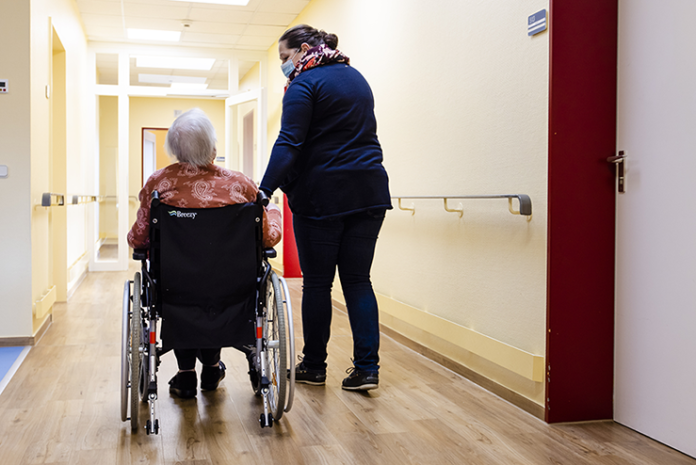Seniors have earned their safety net of Social Security and Medicare, but to truly thrive they need to move beyond the well-planned life to add something unexpected: personal risk.
It’s one of the oddest twists of modern society – Americans spend most of their lives being encouraged to work hard to do difficult things. As soon as we hit a certain age, though, it’s all about easing up and backing off.
Grandma, take a break! Give it a rest, Grandpa! You don’t want to chance a fall there!
The problem is, we’ve become so preoccupied with surplus safety at all times for seniors that we have stripped away too many of the surprises and unexpected twists that make life worth living. Is it any wonder that seniors now are battling an epidemic of boredom, depression, and loneliness?
Few people of any age find meaning and purpose in doing the same thing, at the same time, in the same way, every day. We need to mix it up and try something new – a physical challenge, a different setting, a new learned skill.
As a career nurse and chief executive of a complete senior health company, I know that the only risk-free environment is a coffin. No point rushing our way into there.
One of the best solutions to bring risk to seniors is to borrow an idea from the younger generations. Seniors should go gaming.
No, grandparents may not want to take up Minecraft, Fortnite, or Call of Duty. (Though if they want to try it, by all means, go for it.)
I’m also not a big fan of one traditional eldergame, namely, bingo, which is too much about luck and not enough about skill and performance mastery as a source of motivation. There is little in bingo that offers true risks or competition to benefit others.
The better games promote the physical and mental skills that can go unexercised as people grow older.
For families and friends, an excellent plan is to tap into the data collected by Apple watches and Fitbit-style fitness trackers. How many steps a day can you record? How many days a week can you record steps that meet your goal? Instead of making it an individual competition, we see better gains – and more fun overall – when people are assigned to a team.
A team competition makes you responsible to others, not just yourself. It’s human nature to push yourself harder when others are relying on you. Maybe the team is made up of family and loved ones. Maybe it’s friends and neighbors. The overall goal is to get everyone accountable – and moving.
In our own health business, we have 1,000 seniors, aged 60s to 100 and up, who compete in Spark Performances, which include an annual TRY-athlon Tournament, a remote-control National Forklift Racing League, and The Grip Games. There also is the Spark Challenge, where community teams battle for the league championship using walkers, stationary bikes, and arm cranks. Every week the 32 teams in the league tune in to The Really Big Show, an ESPN-style Sports Center wrapup that features results and league standings. Established powerhouse teams are the Dragonflies, Cardinals, and River Rats. The competition is fueled by a $32,000 tournament purse.
Of course, not everyone can do the more physically demanding tasks – though a 95-year-old is one of our leading hallway runners – but every team has a place for someone, including coaches, statisticians, and cheerleaders.
How is it safe to have great-grandmothers running down hallways in walkers? The truth is, it’s not completely safe. But that’s the point. And it’s also really fun.
A few weeks ago, an 80+ woman was competing in the hallway run when she slipped, fell, and cut her knee.

In the emergency room, the doctor asked her how the injury happened. “I fell in a triathlon,” she replied.
The doctor thought she was joking — until the woman asked to be patched up as quickly as possible, so she could complete her remaining two events. She was extremely proud and definitely adamant — she really, really did not want to let down her team.
What she saw was a chance to win. What our medical team saw was strength, purpose, and belonging.
Whether in a senior community or in life, aging is a team sport. As our years go up, we depend more on others to reach our goals. Our team may include family, friends, medical professionals, or even a fellow hallway racer on a walker. We’ll do better together, if only we take that risk to challenge our minds and bodies with something new.
Joel Theisen, BSN, RN, is founder and chief executive of Lifespark, a Minnesota- based complete senior health company. Follow him on Twitter: @Lifespark_CEO.
